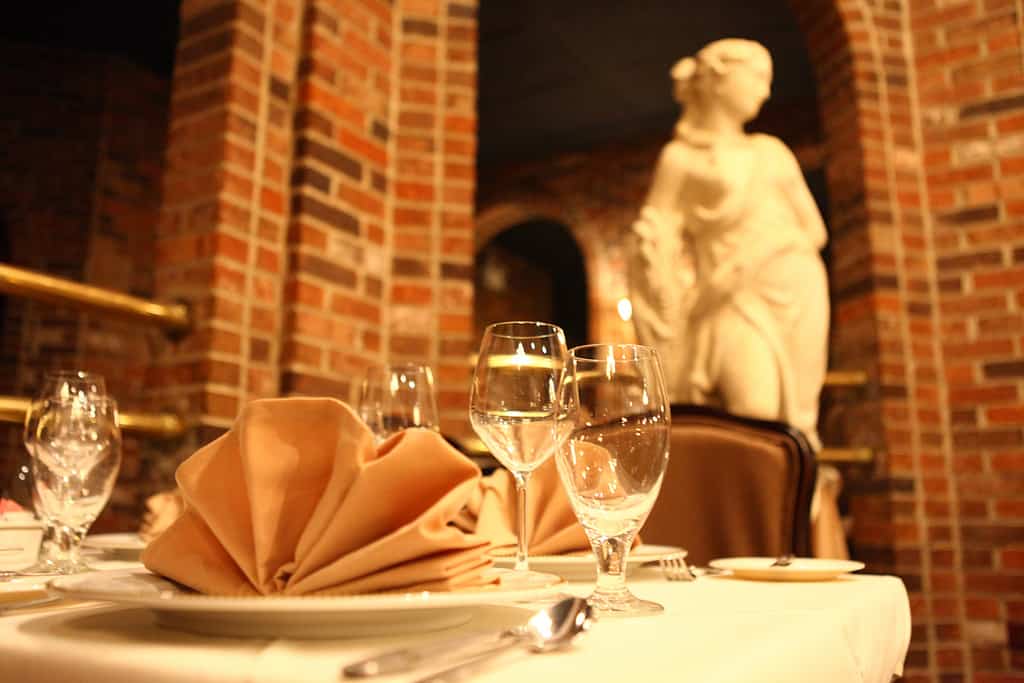“Buon giorno – io sono un gesuita dagli Stati Uniti,” is what I wanted to say. But my basic Italian would serve me quite poorly in Krakow. The elderly Polish brother, Augustyn, who welcomed me to the Jesuit community there gave me a polite look that seemed to say, “We have no words in common, do we? Oh well, follow me to your room.” Off we went.
I arrived in Poland only to find myself, once again, ill-equipped to communicate with most everyone around me. I suspect that this would be less of a problem if I looked less Polish. Despite my inability, the kind people of Krakow had no problem addressing me in Polish. “Skla’sfnlaksndashsialsk, ndskndzoob?” I’d hear them ask. Mute and awkward, all I could do is make the “sorry” face and hold up my palms.
It’s no fun being tongue tied in a foreign place, so the first thing I asked the English-speaking Jesuits was how to say “thank you” and “pardon me.” As it turns out, “dziękuję” and “przepraszam” don’t sound like they look. Each time I tried to replicate what I heard a patient Pole say, he or she was forced to repeat it a little louder, a little more slowly. And for the life of me I couldn’t put my finger (or rather, “tongue”) on what the difference was between what the two of us were saying.
Uh boy.
***
Meister Eckhart famously quipped that if your only prayer is “thank you,” it will be enough. I suggest that an admirable partner to Eckhart’s thanks is “przepraszam,” “pardon me.” Begging another’s pardon for the ways, large and small, that we find ourselves with foot-in-mouth disease is certainly an act of petition. We all stumble awkwardly through life, grasping for others’ pardon when we do. Navigating this in a totally different language has proved humbling – and a little tiring. Humbling and tiring, such is vulnerability.
Over the week I spent verbally stumbling through Poland, I was consistently surprised by how patient and gracious the Jesuits who accompanied me were. I’d sit down at a table in our house for dinner, and they, ready to welcome the stranger, would quickly switch to English. One older gentlemen, clearly not an Anglophone, tried language after language until we discovered that our halting French might allow for some dinner conversation. After a few minutes of bumbling, he leaned forward with the disarming smile that the humble can muster. “When I went to France,” he said “they told me that I speak French like a Spanish cow.” His eyes smiled, and he said, “Perhaps we have this in common?”
***
By the end of my visit old brother Augustyn had even learned a few phrases of American English. “How are you?” and “You like?” and “Good, good!” he would say to me as we passed in the hallway or sat down at lunch. I imagine that he had gone out of his way to ask some of the younger Polish Jesuits, “I want to make the American feel at home. How can I do that?”
The dis-ease of feeling like an ugly American abroad melts with these efforts that others make to welcome, to communicate. Their efforts seemed to say to me, “Don’t worry, young man. We’re all in this together.” I suspect that God works a bit like this, switching into our language, reaching out to us in our incapacity, finding us where we are, not where we think we should be.
I left Krakow far from comfortable with Polish, but having learned how to be comfortable receiving hospitality and care. There’s a prayer in “pardon me” – but even that has a hard time topping the “thank you” that answers another’s effort to welcome.



